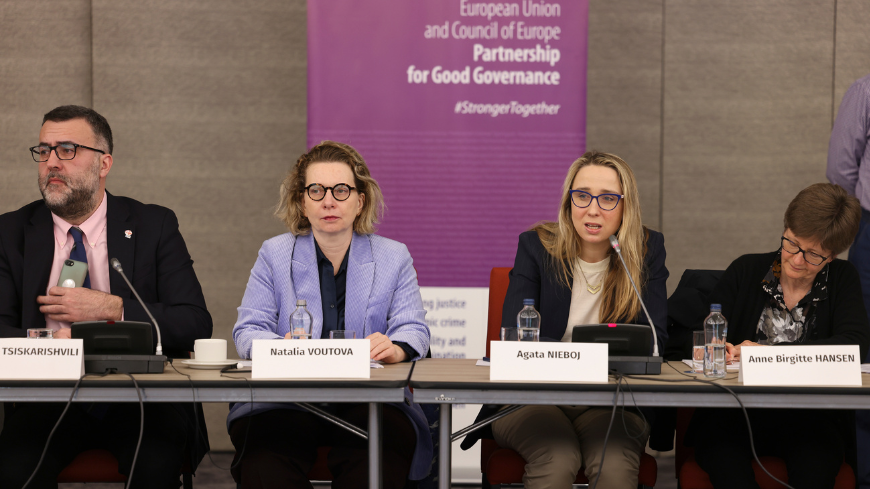New projects presented by the European Union and the Council of Europe at an event today will be carried out in Georgia under the third phase of the EU/CoE “Partnership for Good Governance (PGG III)” programme in 2023-2027.
Four country-specific projects will be implemented in Georgia, with a total budget of 3 million euros, co-funded by the EU and the Council of Europe. They will build on the results of the previous phases of the programme and aim at assisting authorities to further strengthen the independence of justice and the modernisation of court management, as well as enhancing the institutional and operational frameworks to prevent and combat corruption, money laundering and terrorist financing, combating hate speech. The PGG will provide support to the country in the context of its European perspective agenda, in line with the Council of Europe standards.
At the regional level, Georgia will be taking part, together with other countries, in three projects aimed at fighting economic crime, promoting equality and non-discrimination, facilitating access of women to justice.
Agata NIEBOJ, Team Leader, Rule of law, Security & Human Rights Team, European Union Delegation to Georgia, Shalva TSISKARASHVILI, Director of International Organizations Department, Ministry of Foreign Affairs of Georgia, and Natalia Voutova, Head of the Council of Europe Office in Georgia opened the meeting.
The presentation of the projects was part of the first Local Steering Committee meeting which also discussed the results and achievements of the previous phases of the PGG.
The “Partnership for Good Governance” (PGG) is a joint initiative of the European Union and the Council of Europe for strengthening good governance in the Eastern Partnership region.





